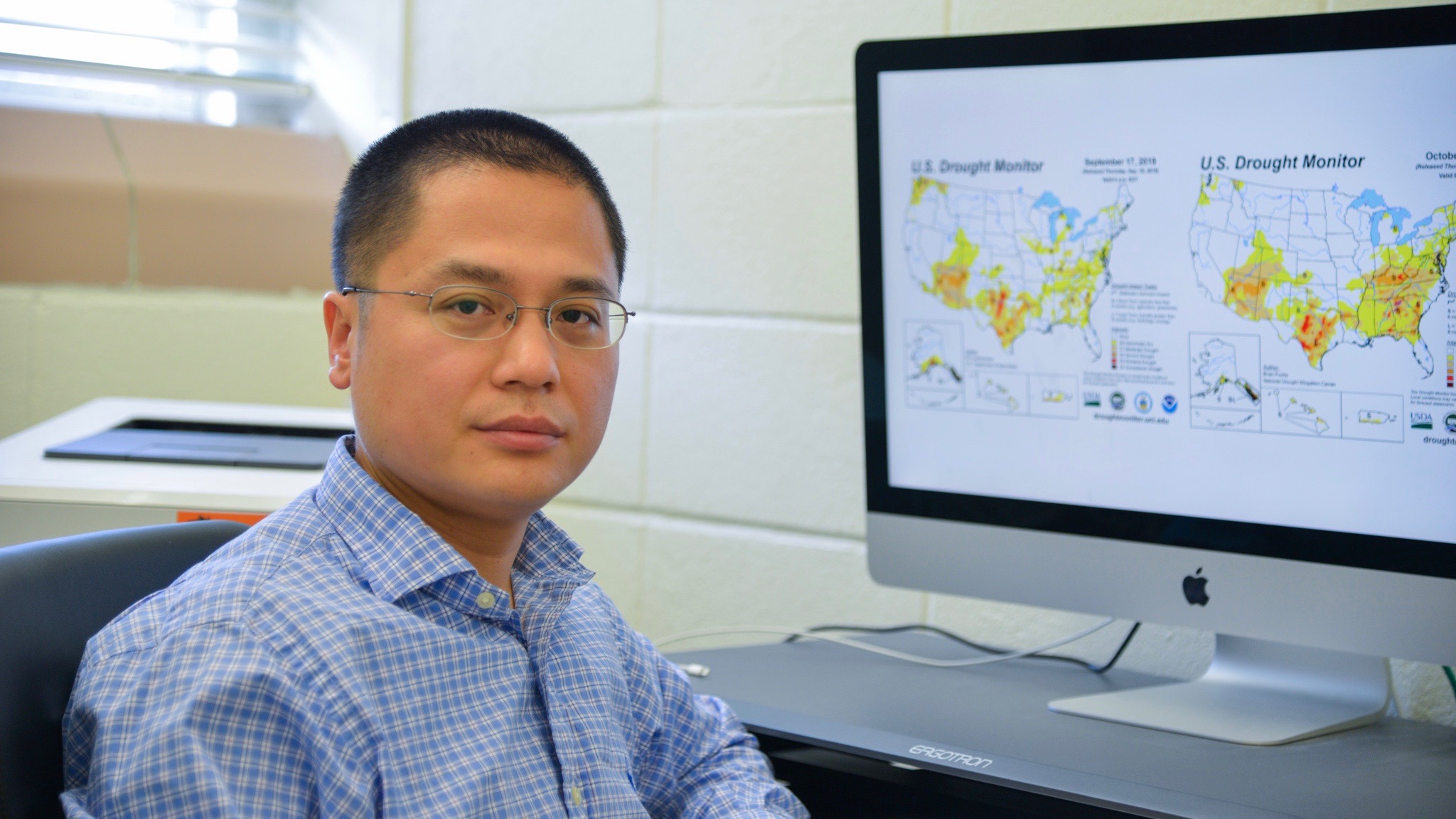Di Tian, an assistant professor in the Auburn University College of Agriculture’s Department of Crop, Soil and Environmental Sciences, has been named a recipient of the National Science Foundation’s Faculty Early Career Development, or CAREER, Award.
The CAREER program is a foundation-wide activity that offers the NSF’s most prestigious awards in support of early-career faculty who have the potential to serve as academic role models in research and education and to lead advances in the mission of their department or organization. Activities pursued by early-career faculty should build a firm foundation for a lifetime of leadership in integrating education and research.
Tian’s award is for his integrated project titled “Analytical methods for understanding and predicting agricultural flash droughts in a changing climate.” The total award is $574,706 over five years, co-funded by the NSF Hydrologic Sciences and NSF Climate and Large-Scale Dynamics programs.
The research, Tian said, will investigate underlying drivers of agricultural flash droughts using machine learning-based causal inference analysis, develop and evaluate sub-seasonal agricultural flash drought forecasts using deep learning approaches and assess changes in agricultural flash drought under contemporary and future climate based on coupled general circulation models large ensembles.
“These research objectives will be integrated with an education and outreach plan focusing on developing and implementing innovative lessons on drought through the 4-H ‘head, heart, hands and health’ program, conducting workshops on sub-seasonal forecasts and decision making with stakeholders through a climate learning network and mentoring undergraduate and graduate students,” Tian said.
Deliverables from this project will contribute to an improved understanding and predictions of flash droughts at the regional scale and will provide a framework for analyzing a broader class of extreme climate events, which will be transferrable to different locations around the world, he added.
Flash drought, Tian said, is an extreme hydro-climate event characterized by sudden onset, rapid intensification and devastating impact on communities. A notable example is the U.S. Southeast flash drought in September 2019.
“It rapidly depletes soil moisture, posing significant water and heat stresses for agriculture and ecosystems and potentially driving water demand and irrigation expansions to traditionally rainfed regions,” he said. “Flash drought is challenging to predict because of its fast onset and development and complex land-ocean-atmosphere factors that contribute to or affect their formation. The NSF CAREER Award allows me to probe into the immediate goal to understand and predict flash droughts, which can potentially accelerate strategies for climate change adaptation.
“It also encourages me to continuously pursue my long-term research goal to integrate terrestrial hydrology, climatology and data science to address gaps and needs for better understanding and predicting hydro-climate impacts and risks in water and food sustainability, and my educational goal to integrate research and real-world applications to enhance learning and climate-aware decision making.”
Tian’s lab, Climate Analytics Group, focuses on understanding and predicting primary climate and hydrologic indicators, extreme events and impacts on water resources, ecosystem and food and agriculture using data science and artificial intelligence techniques, process-based modeling, high-performance computing and emerging earth system data generated from numerical simulations, sensors and satellites.





